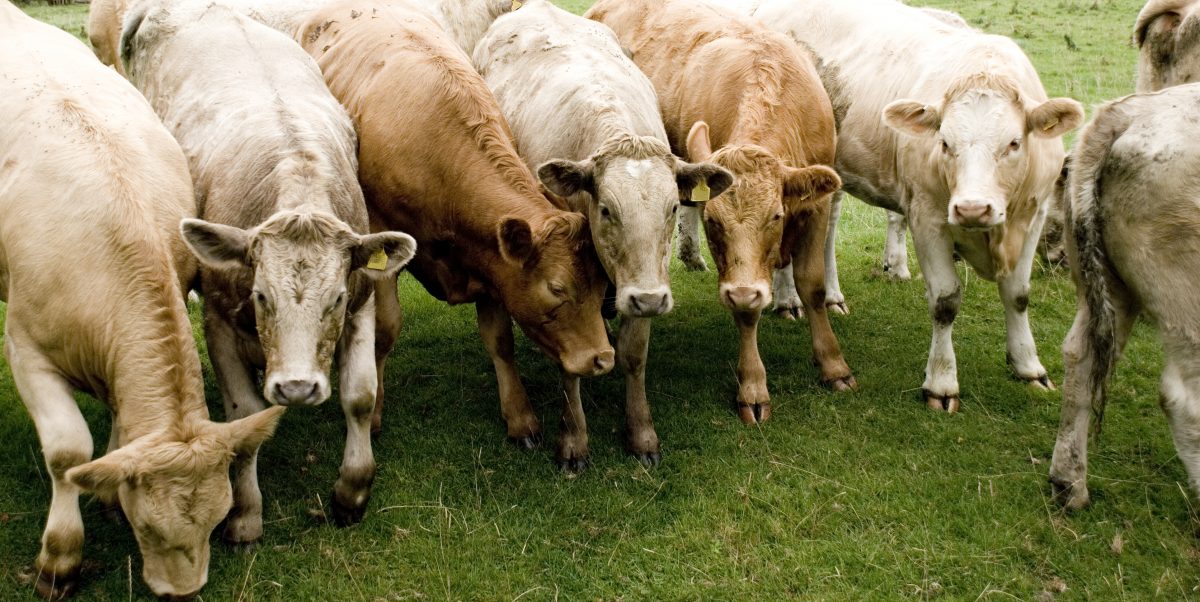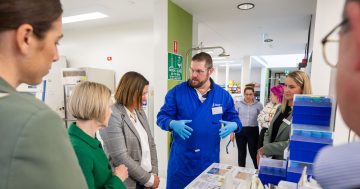
Charles Sturt hosts ten delegates from Timor-Leste as part of the international biosecurity training program. Photo: Mutenagen.
Charles Sturt University has launched a $770,000 international training program to strengthen biosecurity in Asia-Pacific, offered through CSU’s Biosecurity Training Centre at its Wagga campus.
Delegates from Timor-Leste and Indonesia have been given the opportunity to come to Wagga and complete country-specific ‘train the trainer’ programs at the BTC. The training aims to fill the gaps in their capacities to identify, treat and prevent exotic diseases such as lumpy skin disease (LSD) and foot and mouth disease (FMD).
The initiative is being conducted in partnership with the Department of Agriculture, Fisheries and Forestry and forms part of the federal government’s $14 million commitment to regional biosecurity.
Ten delegates from Timor-Leste attended the training on 27 April, and delegates from Indonesia will complete the program in May.
The training is delivered by Professor David Mackay, academic director of the Biosecurity Training Centre.
Professor Mackay hopes the training will improve national and regional preparedness for changing biosecurity risks, and help ensure responses are effective so that countries can remain resilient.
He said that how the biosecurity system needs to effectively function is influenced by the ever-changing global landscape, which includes the economic and population growth across the Indo-Pacific region.
“At this time, Indonesia and Timor-Leste are facing a number of significant risks in relation to foot and mouth disease and lumpy skin disease,” Professor Mackay said.
While Indonesia is conducting ongoing efforts to manage FMD and LSD, Timor-Leste is currently free of these two diseases, so the training is focused on prevention and preparation response.
“Building biosecurity capability through the sharing of international best practice in border management, and animal and plant pests and diseases, will assist these near neighbours in their efforts to prevent and respond to a range of existing and new biosecurity risks.”
He said the training will allow the delegates to contribute to new ways of thinking about regional biosecurity risk management.
Minister for Agriculture, Fisheries and Forestry Murray Watt said the training program was part of a broader federal government agenda to invest in regional biosecurity, which includes closer collaboration and cooperation with its nearest neighbours.
“Australia is free from FMD and LSD and we are determined to keep it that way,” Mr Watt said. “Helping our friends and neighbours detect and manage their risk to these exotic diseases, helps us protect our vital agricultural sector.”
“Australia has a long history of biosecurity collaboration with Indonesia and Timor-Leste, and we have ramped up our work together since May 2022 following the detection of FMD in Indonesia.
“This program will provide vital support to Indonesia’s efforts to control the FMD and LSD outbreaks there while assisting Timor-Leste’s to prevent and prepare for an incursion,” he said.








